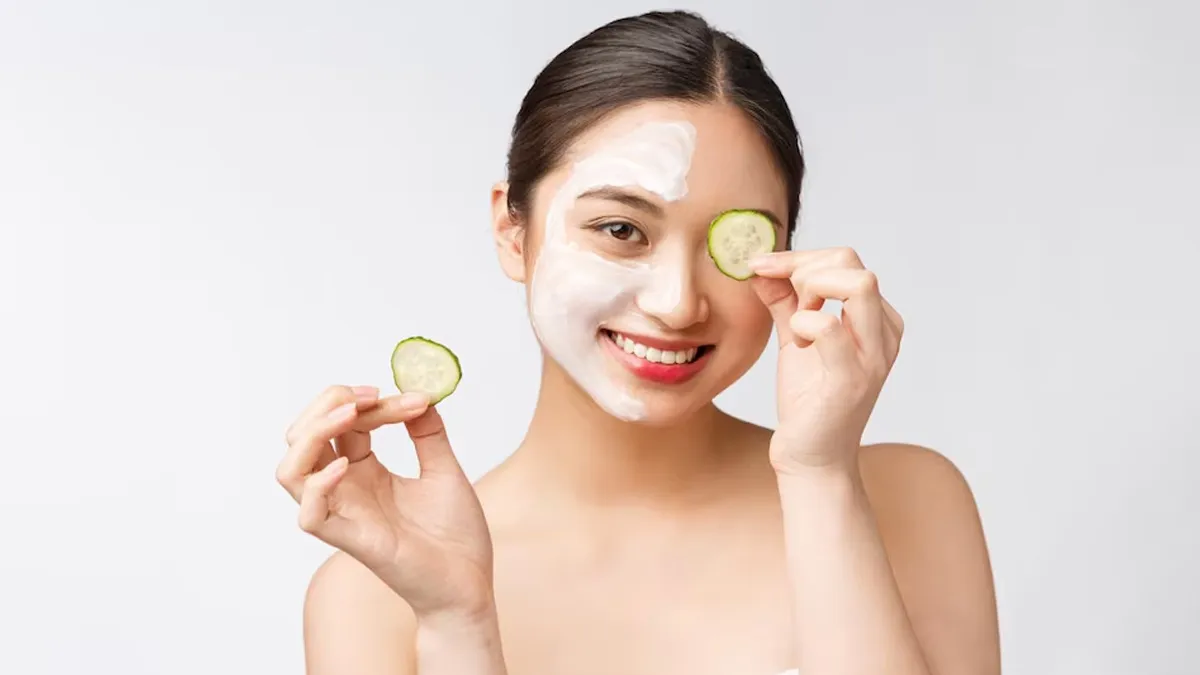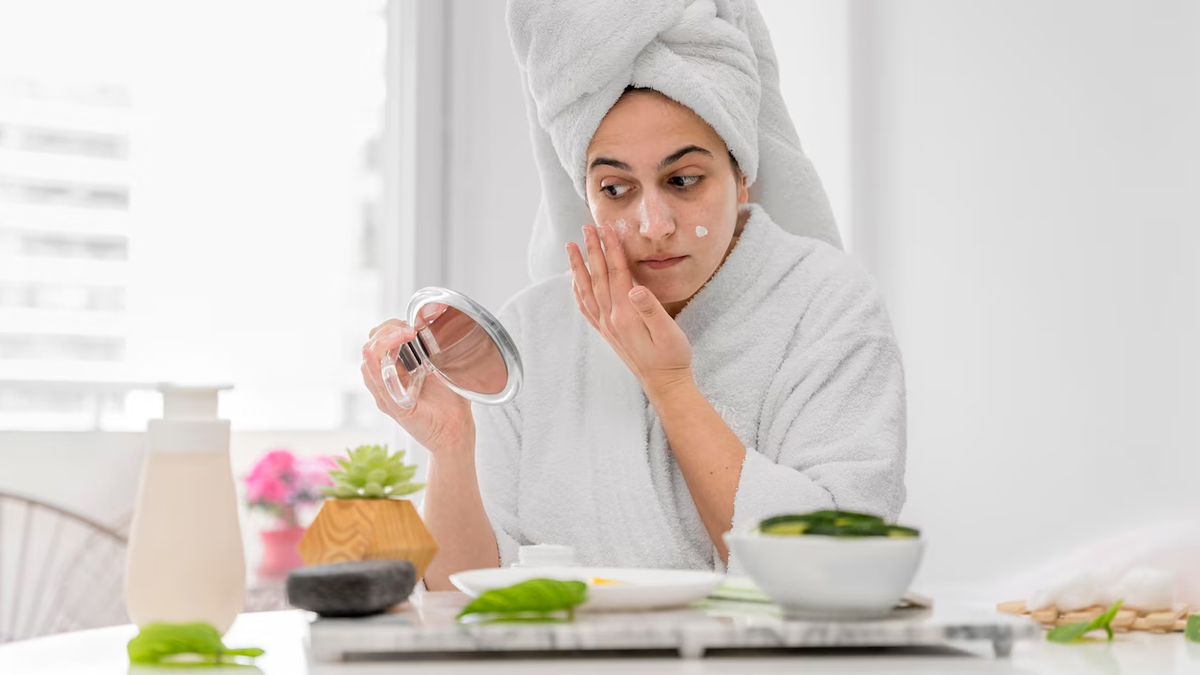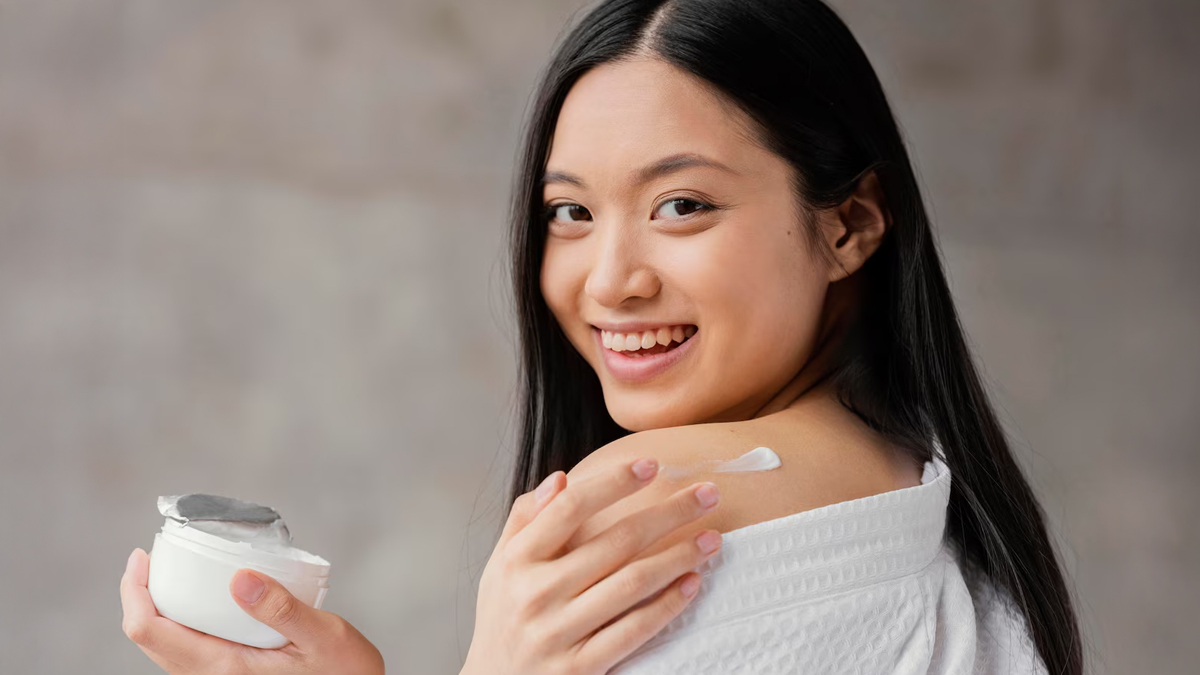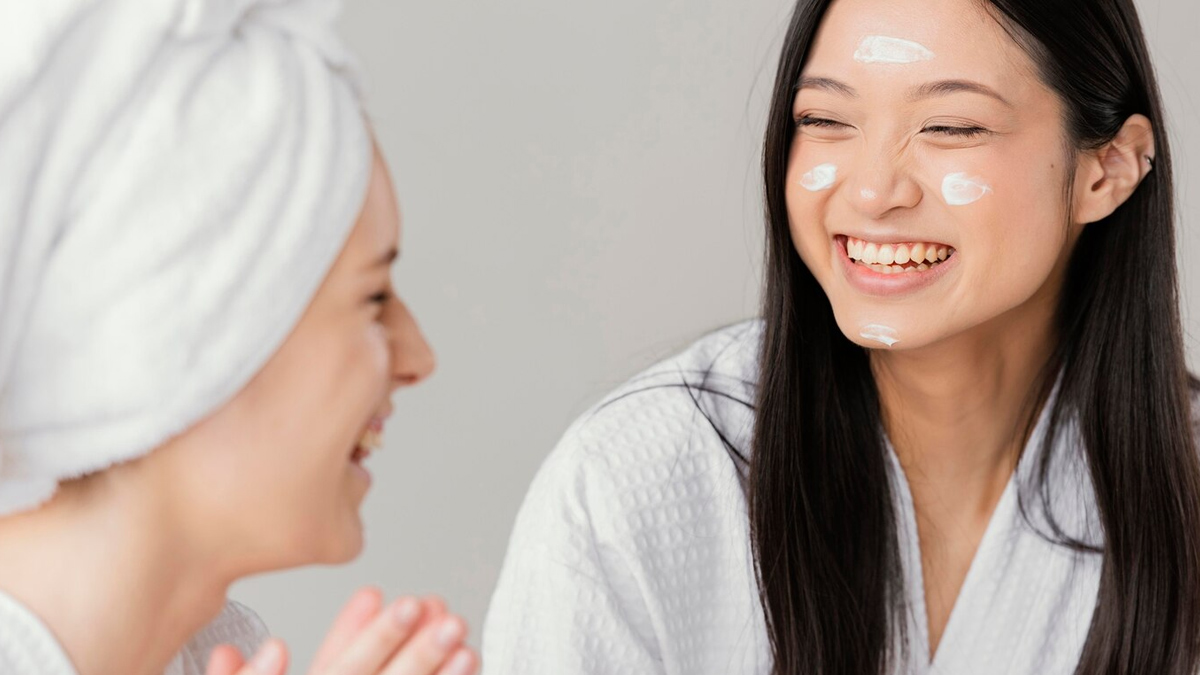
The frenzy of social media has brought the reign of Korean skincare to the forefront. While the trend has stayed for long enough, its right usage is still an enigma to many. Time and again, the Indian beauty industry has questioned whether the Korean skincare is the real deal for the Indian consumer’s skincare needs.
Table of Content:-
To break free from this dilemma, Dr Teena Singh, an aesthetic physician and cosmetic surgeon at Dr Teena’s Aesthetics & Cosmetology Centre, Lucknow, sheds light onKorean skincare dos and don’ts. In this exclusive expert take, OnlyMyHealth covers whether or not it should be a holy grail for Indian consumers.
Is Korean Skincare Suitable for Indian Skin?
Starting at the dawn of 2010-2011, Korean skincare took the leap of faith and revolutionised the Indian market with BB cream (Blemish Cream). Since then, it has only soared to launch full-fledged skincare routines and products. But beyond all the hype, does Korean skincare stand a chance to beat the competition from other regimes, especially for Indian skincare?
The answer lies in the prominence of ‘glass skin’ that has taken the world of beauty by storm. To add more substance and transparency to these claims, Dr Singh said, “Korean skincare is amazing but not everything in it should be followed.”

Why Korean Skincare Keeps Winning in India?
In an era when trends fade more easily than the light of day, Korean skincare has stayed in India for over a decade. With Korean sunscreen and sheet masks making the headlines and niacinamide stirring the skincare pot, getting even men to indulge in skincare. Amidst the scorching Indian sun, sunscreen is paramount, and so is the proper AM-PM skin care regimen.
Talking about the importance of proper sun protection and how the Korean formula might be the best there is, Dr Singh said, “Korean skincare is winning in India owing to its ability to cater to Indian skin. It provides non-oily, lightweight textures. Be it in its serums, moisturisers, or sunscreen. Moreover, Korean products are built sensibly as they absorb quickly and don’t feel greasy, making them ideal for India.”
Dr Singh also highlighted why Korean sunscreens are game-changing and widely popular. “Korean sunscreens are usually lightweight, blend well, and offer high UVA/UVB protection along with almost no white cast, which is crucial for Indian sun exposure.”
ALSO READ: https://www.onlymyhealth.com/how-does-chia-seed-oil-promote-skin-health-12977831581
Is Korean Skincare Just Hyped or the Real Deal? Expert Weighs In
Weighing in on the utility and craze of the K-beauty skin regimes, Dr Singh said, “Korean skincare is not just hype—it is here to stay. Thanks to its well-formulated amalgamation of active ingredients, it works great with Indian skin. Its hydration-centric ideology suits Indian skin that often deals with dehydration, dullness, and uneven tone due to sun, pollution, and hard water.
Korean ingredients like hyaluronic acid, snail mucin, and rice water boost hydration without clogging pores.”
She also highlighted some of the active ingredients that work well with Indian skincare, especially in the summers. “The Indian population can react easily and darken post-inflammation due to sun, pollution, and high humidity weather. So it is advisable to look for soothing actives, particularly for sensitive, pigmentation-prone skin, often found in Ingredients like: Centella Asiatica (soothes), Niacinamide (brightens & evens tone), Mugwort or green tea (anti-inflammatory properties), these are perfect for Indian skin sensitivity and pigmentation control. But obviously, genetics matters and glass skin isn’t universal, so such a skincare system affects different skin types differently.” Dr Singh advises.
ALSO READ: https://www.onlymyhealth.com/skin-benefits-of-lactobionic-acid-and-how-to-use-it-12977831504

Tips for Korean Skincare Routine in the Indian Climate
With Dr Singh's verdict at hand, it’s time to focus on some tips shared by her that are perfect for seasoned as well as novice Korean skincare users in the Indian climate.:
Double Cleanse- But Only at Night
Why: Most sunscreens contain minerals, and, mixed with sweat, they can sit deep in the skin. So it is best to double cleanse at night to get rid of all the residual makeup, sunscreen, and the whole day’s pollution.
How to Do it: Start with a cleansing oil (if you have combination skin), or a micellar water (if you have oily skin), followed by a gentle exfoliating facewash or cleanser.
Best for: Oily and combination skin, as found mostly in India.
Skip 10 Steps- Stick to 5 or Less
Why: Korean skincare is known for its elaborate 10-step skin regimen, but looking at India’s high humidity, it’s better to stick to the ‘less is more’ mantra. The usual CTM+ lightweight-broad spectrum sunscreen (Cleanse, Tone & Moisturise) routine seems the smart way.
How to Do it: Simplify AM & PM routines with CTM+Serum+sunscreen for morning, while sticking to the same routine for night, replacing sunscreen with night cream.
Best for: All skin types, especially acne-prone skin, as sticking with a minimal and consistent routine helps with flare-ups.
Focus on Skin Barrier Repair
Why: In an attempt to get rid of excessive oil during humid weather, extra face washes occur, creating abrasion on the skin. To avoid this, taking care of the skin at the right point is important.
How to Do it: Limit exfoliation to only 2X a week, giving skin some time to heal, especially if using active agents like AHA/BHA.
Best for: Oily skin types, as active exfoliation can cause more harm than good in dry skin. While combination skin should use exfoliation on the excess oil producing area only.
Night Care is Key: Healing Process
Why: During the day, skin is met with harsh agents like pollution, multiple products (skincare & makeup), and stress, leading to excessive or no cleansing.
How to Do it: Fix the skin barrier by choosing creams with ceramides and peptides to soothe the skin overnight. Also, don’t forget to add eight hours of peaceful sleep to add to your glow and overall health.

Conclusion:
Korean skincare has become a staple in the Indian market for a reason. It plays right into the consumer needs and climate needs of India’s greasy and 8-month-long summer. While the rays are harsh, Korean skincare is light, soft, and easy on the skin.
According to Dr Singh, the key points that make Korean skincare staples are their ability to focus on the glow and overall even skin tone. Also, it works well for melanin-rich Indian skin without being harsh. She also added, “But, it is important not to fall for gimmicks and clickbait trends. Some of these trends are:
Whitening claims
Overuse of fragrance
Layering active ingredients together
Using trending ingredients without understanding their purpose.
However, it is advisable not to blindly follow trends and listen to your skin’s needs. Learn what’s best for your skin and what your skin needs.
For more information on specific skin conditions, connect with a specialist or a dermatologist.
Also watch this video
How we keep this article up to date:
We work with experts and keep a close eye on the latest in health and wellness. Whenever there is a new research or helpful information, we update our articles with accurate and useful advice.
Current Version